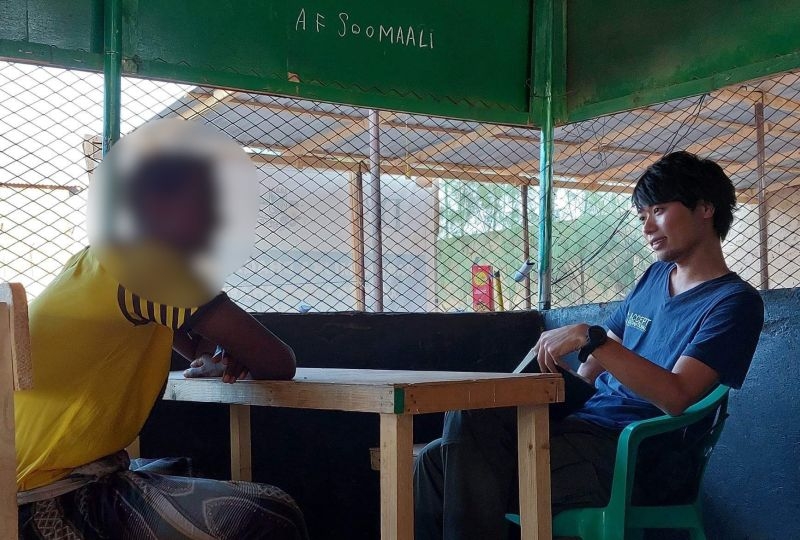AMISOM>
4 September 2023
Our new Research Paper Youth Associated with Non-State Armed Groups: Building an Evidence Base on Disengagement Pathways and Reintegration Challenges presents a comprehensive examination of the realities faced by 'Youth Associated with Non-State Armed Groups' (YANSAG).
Based on field data collected in Somalia, Yemen, South Sudan and Colombia and authored by our Head of Research and Policy Studies Dr Erica Harper and Visiting Research Fellow Dr Yosuke Nagai, the paper analyses the distinct needs of these young people, as well as their potential — and often overlooked — role in peacebuilding efforts.
‘This paper offers unique insight into how the community of practice might develop more effective and impactful strategies when dealing with former combatants. This is a topical issue for both countries where non-international armed conflicts are taking place, but also for countries of origin seeking to reintegrate YANSAG’ underlines Dr Haper.

Geneva Academy


Accept International
AMISOM>
In this paper, the authors introduce the term 'Youth Associated with Non-State Armed Groups' (YANSAG) and highlight their lack of recognition as 'youth' as well as the absence of an international protection framework that caters for their distinct needs and vulnerabilities.
‘Often, discussions within the realm of conflict resolution, disarmament, reintegration, and counterterrorism overlook the complexities faced by YANSAG. This paper aims to rectify this oversight and trigger discussions aimed at empowering YANSAG as agents of peace’ explains Dr Nagai.

UNMISS

ICRC
ICRC>
The paper's findings draw from an analysis of semi-structured interviews with 120 youth previously associated with non-State armed groups (NSAGs) such as Al-Shabaab, the Houthis, SPLM-LO, and FARC. It confirms the disproportionate participation of young people in violent extremism and NSAGs at between 70-90 percent. The data also highlights the vulnerabilities faced by these individuals both before and after their engagement. Strikingly, a vast majority of respondents had desired to leave their groups but lacked opportunity.
Hindrances included fears of reprisals, lack of practical support, and to a lesser extent, the absence of legal amnesty. The paper also highlights consistent messages from YANSAG to their peers, emphasizing the scope of life outside of the group.
‘In short, we need to radically rethink our approach to YANSAG. Strategies need to be centred around prevention, providing concrete assistance for safe disengagement, extending juvenile justice norms to YANSAG, and integrating restorative justice with a focus on desistance rather than de-radicalization’ underlines Dr Nagai.
‘Integrating YANSAG’s concerns into conversations around peacebuilding, stabilization, resilience and broader youth agendas is also pivotal’ he adds.
 News
News
Geneva Academy
The Geneva Academy has published a new spot report analysing Israeli policy and practice relating to water in the Occupied Palestinian Territory through the lens of IHL.
 News
News
Geneva Academy
Participants from six countries across the Middle East and North Africa region joined our customized training on the Geneva-based United Nations human rights mechanisms
 Training
Training
UN Photo / Jean-Marc Ferré
This training course will explore the origin and evolution of the Universal Periodic Review (UPR) and its functioning in Geneva and will focus on the nature of implementation of the UPR recommendations at the national level.
 Project
Project
UNAMID
This project will develop guidance to inform security, human rights and environmental debates on the linkages between environmental rights and conflict, and how their better management can serve as a tool in conflict prevention, resilience and early warning.
Adobe
This initiative wishes to contribute to better and more coordinated implementation, reporting and follow-up of international human rights recommendations through a global study on digital human rights tracking tools and databases.
 Publication
Publication